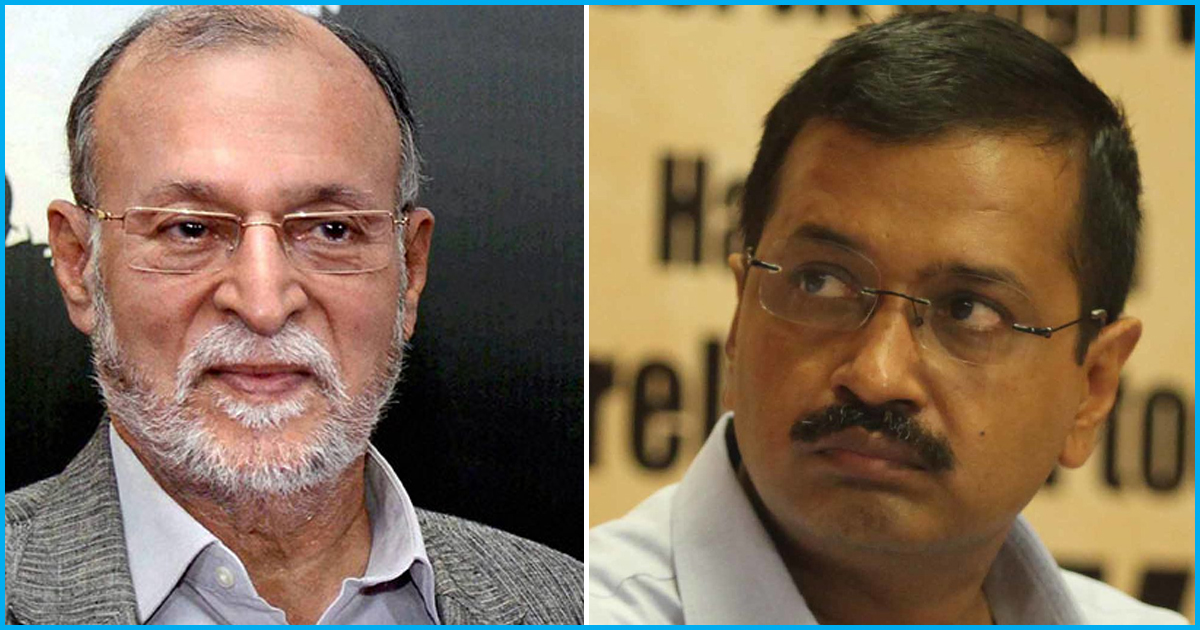The Power Tussle in New Delhi.
~Preet.

Because Delhi lacks statehood, there has been a protracted conflict over the relative powers of the elected government of New Delhi and the Lieutenant Governor (L-G) (chosen by the Union Government) for the territorial administration of New Delhi. The two had several disagreements, involving control of institutions such as the Anti-Corruption Bureau, the Civil Services, and the Electricity Board, among others. Furthermore, the 2021 modification to the Government of National Capital Territory of Delhi Act,1991, emphasises that the danger of violence remains.
The position of Delhi as a Union Territory under Schedule 1 of the Constitution, but renamed the "National Capital Territory" under Article 239AA, as engrafted by the Constitution (69th Amendment) Act. The 69th amendment to the Indian Constitution included Article 239AA, which proclaimed the Union Territory of Delhi to be managed by an L-G who works with the assistance and advice of the elected legislative assembly. The 'assist and advise' provision, on the other hand, applies limited to subjects over which the elected Assembly has authority under the State and Concurrent Lists, with the exclusion of public order, police, and land. The status of Delhi as a Union Territory under Schedule 1 of the Constitution, but renamed the "National Capital Territory" under Article 239AA of the Constitution (69th Amendment) Act. Article 239AA of the 69th amendment to the Indian Constitution declared the Union Territory of Delhi to be handled by an L-G with the aid and advice of the elected legislative assembly. The 'assist and advise' provision, on the other hand, only applies to topics over which the elected Assembly has power under the State and Concurrent Lists, excluding public order, police, and land.
The Delhi High Court ruled in favour of the Central Government, citing Delhi's position as a Union Territory. However, the Supreme Court referred the case to a Constitution Bench to rule on the substantive legal issues related to the authority of Delhi's elected government in relation to the Lieutenant Governor (L-G). The case that was referred to the Constitutional Court is known as the NCT versus UOI case, 2018. The five-judge Bench began a new jurisprudential chapter in NCT Administration. The court used the concept of purposeful construction to say that the goals of the Constitution (69th Amendment) Act should govern the interpretation of Article 239AA. This incorporates federalism and democratic concepts into Article 239AA, indicating parliamentary intent to provide a sui generis (of its own sort) status distinct from other Union Territories. The Court stated that the L-G is bound by the Council of Ministers' "help and advice," adding that the Delhi Assembly also has the competence to create legislation regarding all topics on the Concurrent List and all subjects on the State List, with the exception of three excluded subjects. Except when referring a topic to the President for a final decision, the L-G should act on the "help and advice" of the Council of Ministers. Concerning the L-authority G's to refer to the President any topic on which the L-G and the Council of Ministers disagree, the Supreme Court held that "any matter" cannot be interpreted to mean "every matter," and that such a reference shall occur only in extraordinary situations. L-G must serve as a facilitator rather than an enemy to the elected Council of Ministers. At the same time, the Court declared that under the constitutional structure, the National Capital Territory of Delhi cannot be awarded the status of a State. The Supreme Court correctly decided that the plan outlined in the Constitution and the Government of the National Capital Territory of Delhi Act, 1991 envisions a collaborative structure that can only be implemented via constitutional trust. Subsidiarity, the central tenet of fiscal federalism, needs strengthened sub-national administrations. As a result, the federal government should shift toward delegating more authority to local governments. In this regard, India should take a cue from various great metropolises throughout the world, ranging from Jakarta and Seoul to London and Paris, which have powerful sub-national administrations.
Comments
Post a Comment